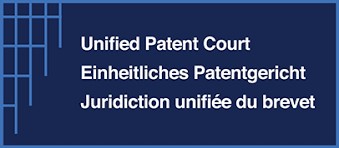2024-11-14:
29 October 2024, through the order ORD_16070/2014, the Nordic-Baltic Regional Division of the Unified Patent Court (UPC), decided to dismiss the claimant’s request to declare that UPC lacks jurisdiction in a case where proceedings had already been initiated before a Belgian court in respect of the non-opted out European patent EP 2 186 428.
Summary:
Jurisdiction and Competence
A patent proprietor, who is an individual and CEO of the Austrian company Textport Handelsgesellschaft mbH (TEXTPORT) sent a warning letter to Sioen NV (SIOEN) alleging infringement of the above patent in Latvia.
In response, SIOEN filed an action for non-infringement in a Belgian court concerning the validations of the patent in Belgium and Latvia. Subsequently, TEXTPORT, who is the exclusive licensee, initiated infringement proceedings against SIOEN at the Nordic-Baltic Regional Division of the UPC, which infringement relates to Latvia and Portugal. At yet a somewhat later date, SIOEN initiated a revocation action against the Belgian part of the patent at the Belgian court, which declared that it has jurisdiction with respect to the Belgian part alone of the patent.
Requests
The Applicant (SIOEN) requested that UPC declares itself without jurisdiction (under Articles 21 and 24 UPCA and Articles 71c(2), 31(1) and 24(4) Brussels I Regulation 1215/2012)
In subsidiary orders, the Applicant (SIOEN) requested stay of the proceedings until the Belgian court has established a final decision, that UPC declares itself without jurisdiction and competence for Belgium and Latvia, and that the Claimant’s claim is inadmissible.
The Claimant (TEXTPORT) requested that UPC dismisses the application.
Decision
The court dismissed all SIOEN’s request, which sought to have the court decline jurisdiction over various aspects of the case because the parties in the parallel proceedings (SIOEN in Belgium and TEXPORT at the UPC) were not the same. Moreover, the parties did not have indissociable interests. Namely, the individual proprietor and TEXPORT are distinct entities and since said individual only owns 26 % of the shares in TEXTPORT, the shareholders who own the remining 74 % of the shares may very well have different interests than the individual owning the patent.
The court thus decided not to stay the proceedings. The court noted that the Belgian court does not have jurisdiction over claims concerning other member states where the patent is in force, and the infringement in question involves Latvia and Portugal.
The decision may only be appealed together with an appeal against the decision on the merits.
Key Takeaways:
Jurisdictional Clarity: The decision clarifies that , order to prevent the UPC from jurisdiction of a non-opted out European patent if a national court has been first seized in a specific state, the parties and their interests must be identical. I.e., the UPC’s jurisdiction is not automatically overridden by earlier national court proceedings in a parallel matter.
Distinct Parties and Interests: The decision highlights the importance of the parties identities and interests in parallel proceedings. Even if related entities are involved, such as a patent owner and a licensee, they may be considered different parties if their interests are not indissociable.
Procedural Considerations: Requests related to jurisdiction and legal standing can be deferred to the main proceedings, demonstrating the court’s approach to addressing procedural objections incrementally.
Appeal Process: The order shows that, to streamline the UPC appeal process, an appeal related to preliminary objections may need to be bundled with appeals against the decision on the merits.
Text: Joakim Wihlsson
Source: The Unified Patent Court

